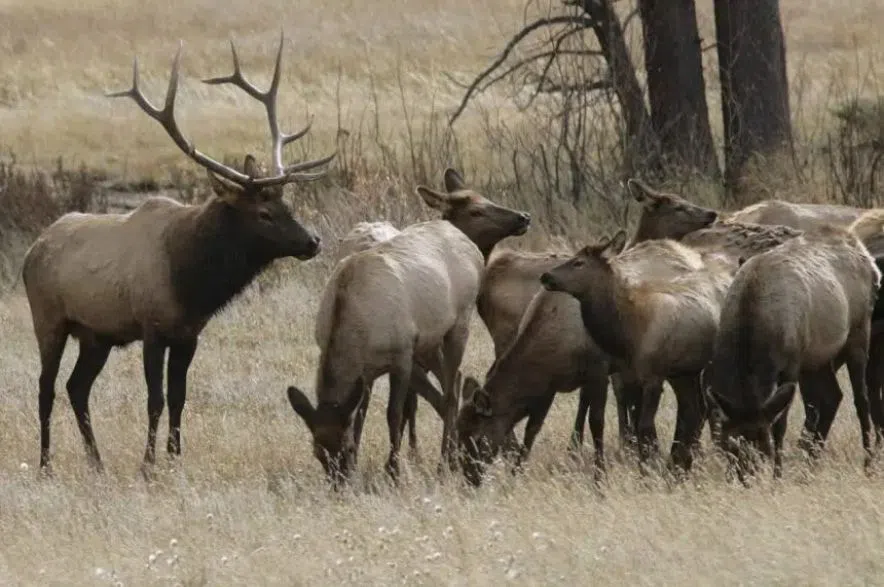Hunters in Saskatchewan are being encouraged to submit their animals heads for chronic wasting disease (CWD) and bovine tuberculosis (TB) testing.
According to the Ministry of Environment, hunters play an important part of the province’s efforts to track and manage animal diseases.
Read more:
- Province starts mandatory CWD and BT testing for hunting season
- Sask. drivers warned to watch for wildlife during peak collision season
- Elk, bear populations on the rise, mule deer decreasing from CWD for hunting season
“In the last year, we received more than 2,000 submissions to the CWD hunter surveillance program – proof of just how dedicated the hunters of Saskatchewan are to protecting wildlife in this province. We are sincerely grateful to all who contributed to this ongoing effort,” Travis Keisig, Saskatchewan’s environment minister, said in a statement.
The province has made CWD testing mandatory this hunting season in Wildlife Management Zones 43, 47, 50 and 55, and for bovine TB in WMZs 37 and 39.
The Ministry of Environment encourages voluntary CWD testing for all cervids in all zones in the province. CWD testing is free of charge.
“The data from submitted game heads helps track CWD rates in wild cervids and confirms that wildlife populations remain free of bovine TB,” noted the ministry.
How to get a game head tested
Hunters have one month from the time of harvest to submit their game heads, or until Jan. 21, 2026, whichever is first.
- Hunters can register online to obtain a unique tracking number.
- With the tracking number, hunters can then drop off the game head at any designated CWD drop-off location.
- Visit the ministry’s website for sampling instructions, drop-off location maps and test results.
About CWD
CWD is a contagious neurological disease that affects cervids such as deer, moose and elk. It is fatal and has no known cure.
“Testing plays a vital role in tracking the disease’s spread and guiding conservation and management efforts,” the environment ministry said in a statement released Wednesday.
While there are no known cases of CWD in humans and the risk of transmission is considered low, hunters were advised not to consume or share meat from animals that tested positive.
If an animal tests positive for CWD, the carcass and meat should be properly disposed of. The ministry said small amounts of processed meat can be double-bagged and placed in regular household waste, while larger quantities of meat or whole carcasses should be taken to a landfill or a Ministry of Environment carcass disposal bin.
The ministry advised hunters to check with local landfills before disposing animal carcasses, as not all facilities accept them.
About bovine TB
Although Bovine TB mainly affects cattle, bison and elk, it can also affect moose and deer.
The ministry noted that bovine TB has never been detected in Saskatchewan wildlife.
If hunters suspect their harvested animal has bovine TB, they were advised to photograph it and email the images to the Ministry of Environment, and contact the Canadian Wildlife Health Co-operative.
Hunters in bovine TB testing zones who wish to keep their head for a Euro mount can visit sampling stations on select dates.











